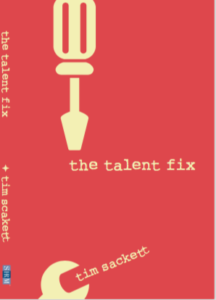Growing up, I was not exposed to the most diverse community. I love my little Michigan town, but it’s pretty white. My parents tried to help me experience diversity growing up; they let me go to Japan for an exchange program in 8th grade and let me go off to college in New York. It wasn’t until these experiences that I was truly exposed to communities that were vastly different than my own.
Recently, I got the chance to attend a Diversity and Inclusion Event at the Charles H. Wright Museum of African American History in Detroit through my internship at Quicken Loans. While there, I watched 2 different panels of QL employees speaking on the importance of diversity and inclusion within QL and the workplace.
One thing that really stuck with me from this event was when one of the panelists said: “We don’t hire people to check off boxes”. All of the panelists discussed how the diversity of experience was essential for diversity and inclusion to thrive. This really caused a shift in mindset for me.
Growing up, I thought that being diverse was simply the inclusion of people from all different backgrounds and communities. While that is a huge part of diversity, being of a diverse background is only one part of having diverse experiences.
I get that I’m not a minority. I’m a white male that is from a middle-class family in the MidWest. We’re a dime a dozen out here. But this helped me see that just because I’m not of a minority ethnicity or gender or some other quality doesn’t mean that I’m not diverse. Creating a background of diverse experiences is how someone like me can become more inclusive.
I believe that it is essential that we instill these values and this knowledge of diversity in Gen-Z. We are in a world that is more diverse than ever before. We need to create an environment where going out and having diverse experiences is celebrated and isn’t feared. It is vital that our educators and leaders are instilling a celebration and appreciation of diversity in their students and employees.
I’ve always known that diversity is important. But now I understand why. Bringing people together of different backgrounds and with different experiences is where you get s*** done and you get it done well. And that’s pretty freaking cool.
This post was written by Cameron Sackett (not Tim) – you can probably tell because it lacks grammatical errors!
HR and TA Pros – have a question you would like to ask directly to a Gen Z? Ask us in the comments and I’ll respond in an upcoming blog post right here on the project. Have some feedback for me? Again, please share in the comments and/or connect with me on LinkedIn.


